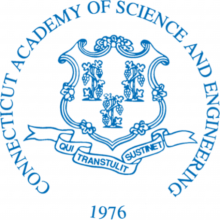Rocky Hill, CT – The Connecticut Academy of Science and Engineering (CASE) today briefs members of the Energy & Technology Committee of the Connecticut General Assembly at the Legislative Office Building in Hartford (10:00- 11:00 a.m., Rm 2D) on a study of Shared Clean Energy Facilities. CASE was commissioned to conduct the study on behalf of the Energy & Technology Committee in September, 2014.
The study provides an overview of shared clean energy facilities (SCEFs) and issues regarding their development and use in Connecticut. Key goals of Connecticut’s energy policy include increasing the amount of electricity generated from clean energy resources and diversifying the state’s energy supply mix. The CASE Study Committee, which included various energy experts from engineers to economists and attorneys, concluded that based on the success of the state’s residential solar PV program and Connecticut’s relatively high electricity rates, it is expected that a Shared Clean Energy Facility Program will be of interest to ratepayers seeking to reduce their electricity expense, while helping to achieve these goals.
Further, implementation of a Connecticut Shared Clean Energy Facility Program requires adoption of legislation and program rules. The program should allow for multiple business models to maximize opportunities for facility development, competition, and choice for all interested participants. Furthermore, a value of clean energy analysis should be conducted to assure rate fairness for all business interests and classes of ratepayers including low-income populations.
Additionally, transforming the energy landscape for the 21st century requires that several broader issues be addressed to achieve a cleaner, safer, and more reliable system related to the anticipated increase in distributed generation, including: fairness in overall rate design to achieve the greatest value from clean distributed energy resource generation — with a goal of reducing the overall cost of electricity; development of utility business models to adapt to the evolving operating environment; and technology challenges to assure that the intended benefits of distributed generation are achieved.
Visit www.ctcase.org and scroll down to Reports and Studies to see the Full Report, Executive Summary, and Briefing PowerPoint.
###

